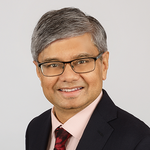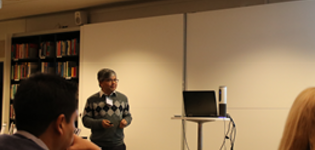Blog
Highlights from the 2019 WIDER Development Conference
The World Bank recently estimated that two-thirds of all jobs in developing countries are at risk of automation. This shocking statistic raises an important question: ‘What can policy makers do to prepare for this tech revolution?’
From 11-13 September UNU-WIDER hosted our 2019 WIDER Development Conference Transforming economies – for better jobs in Bangkok, Thailand, focusing on SDG8: promoting sustainable economic growth, productive employment and decent work for all.
The theme of the conference, transforming economies, is one of the key focuses of our new work programme. The three-day event, in partnership with United Nations Economic and Social Commission for Asia and the Pacific (ESCAP), tackled some of the big questions on job creation — addressing informality, tackling inequality and gender gaps, and protecting the livelihoods of workers in the face of rapid technology advancements.
A central concern of the conference was the future of work in the Global South. We’re witnessing a technological transformation that is simultaneously taking away jobs that can be automated, while also creating new jobs.
Right now, across the Global South, one of the core policy challenges governments and policy makers are faced with is how to provide productive and remunerative jobs to millions of workers in the informal economy. And while work in the modern sector — whether in manufacturing or services— can b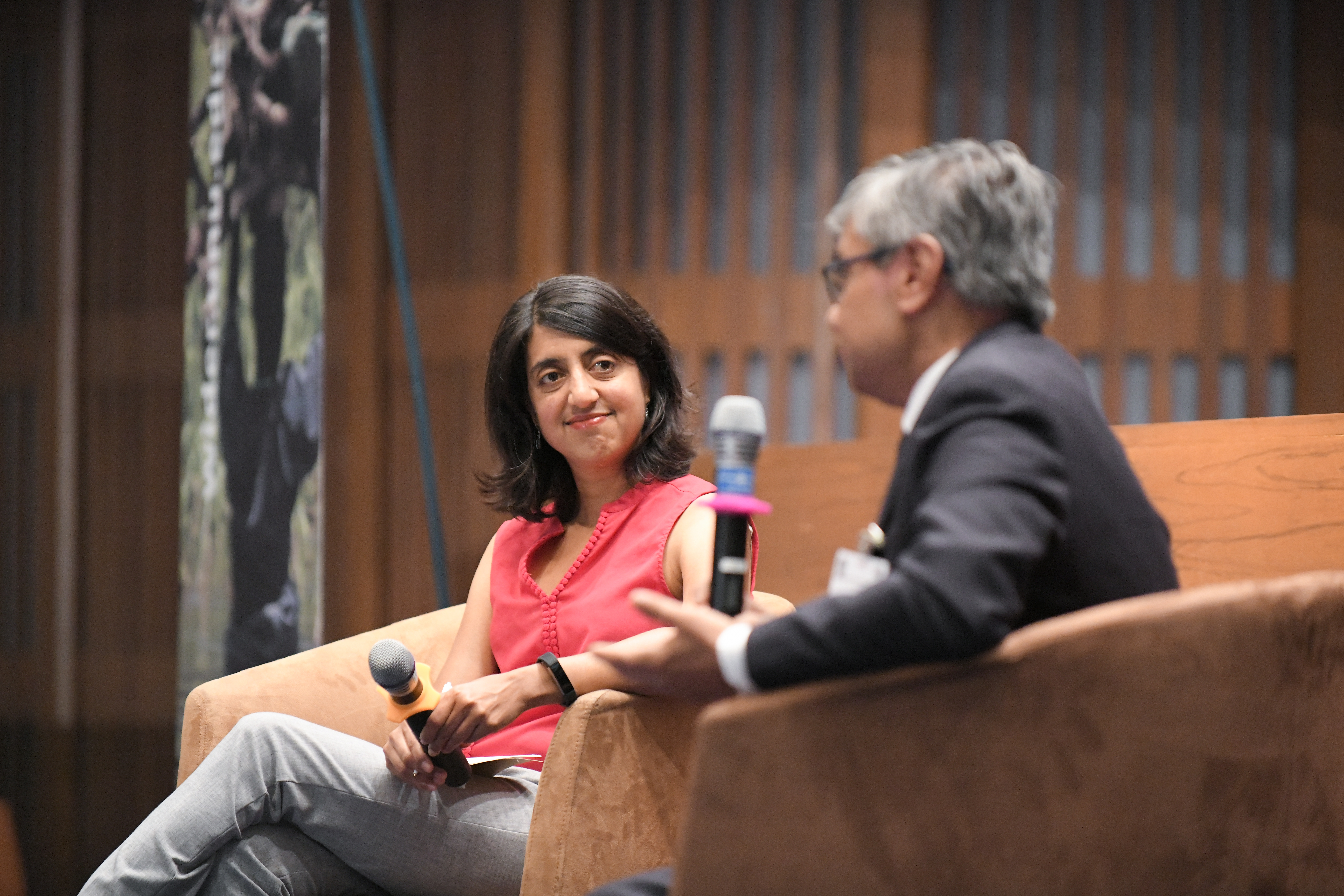 e transformational for poor unskilled workers, many workers find themselves in exploitative conditions earning precarious livelihoods. Furthermore, jobs across all sectors are developing rapidly as technologies change the way we work.
e transformational for poor unskilled workers, many workers find themselves in exploitative conditions earning precarious livelihoods. Furthermore, jobs across all sectors are developing rapidly as technologies change the way we work.
Over the course of the conference experts from around the world presented, discussed, and debated research to address policy for creating productive jobs for the poorest of the poor. Importantly discussions also featured the interlinked issues of reducing inequality and promoting gender equality right from the beginning, with Seema Jayachandran’s opening plenary ‘Dismantling barriers to women's employment in developing countries’
Questions on the future of work and changing technologies sparked debate on the second day of the conference with Damian Grimshaw, Benno Ndulu, Truman Packard, Marty Chen and myself engaging in a policy event moderated by Sharanjit Leyl, on the pace of tech advances and their impact on jobs, particularly in developing economies.
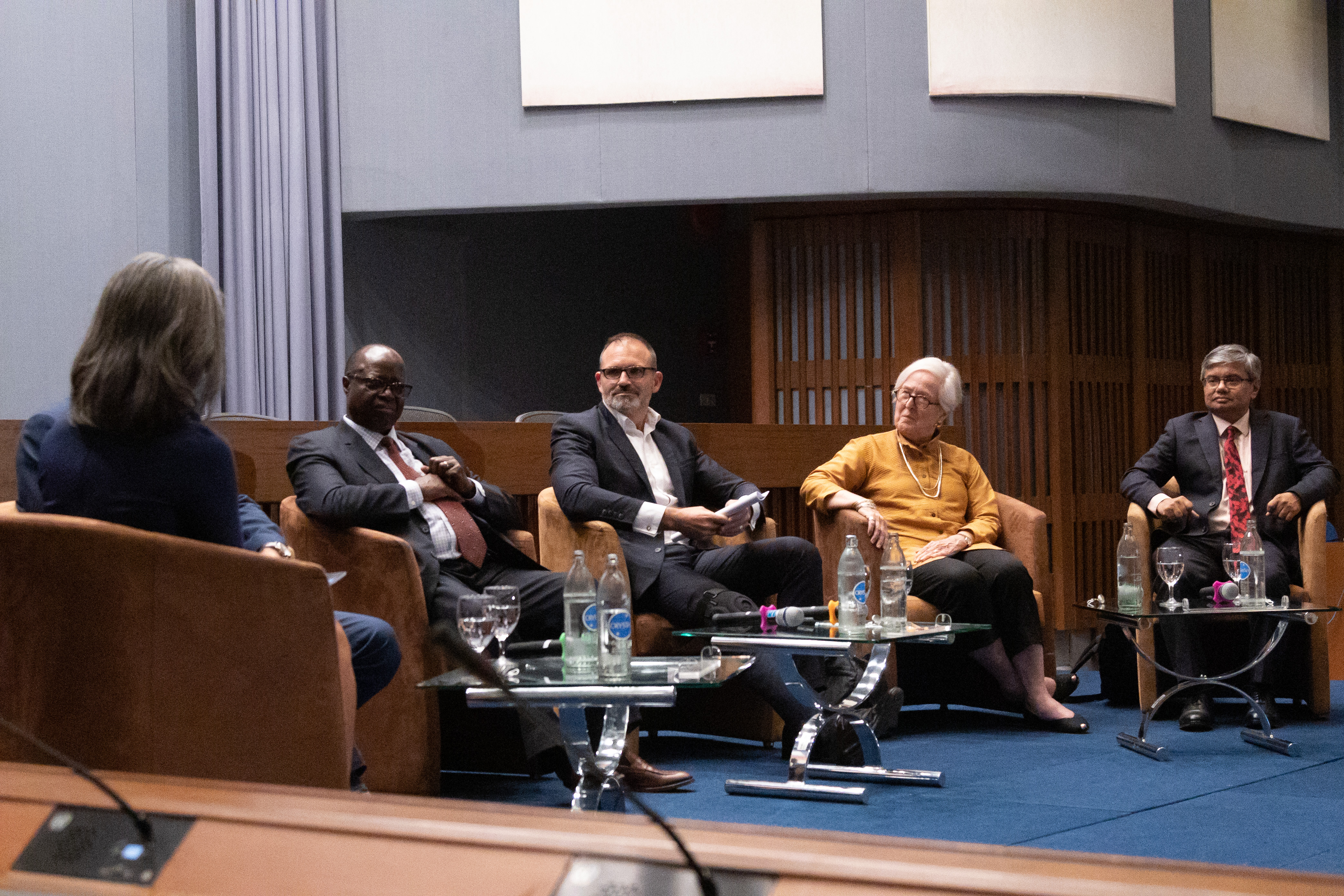 Debates ranged from tech innovation as a positive force for development, to versus tech as divisive and poverty inducing. Benno Ndulu talked about the incredible impact of mobile money in Africa, celebrating the power of technologies to connect people, while Marty Chen reflected on the power of government policies to make or break the livelihoods of those in the informal sector by criminalizing the work that feeds their family. Regardless of which side economics experts were on, they unanimously agreed that policy makers need to prepare for the tech revolution and acknowledge that change is happening now.
Debates ranged from tech innovation as a positive force for development, to versus tech as divisive and poverty inducing. Benno Ndulu talked about the incredible impact of mobile money in Africa, celebrating the power of technologies to connect people, while Marty Chen reflected on the power of government policies to make or break the livelihoods of those in the informal sector by criminalizing the work that feeds their family. Regardless of which side economics experts were on, they unanimously agreed that policy makers need to prepare for the tech revolution and acknowledge that change is happening now.
As Richard Baldwin pointed out in his plenary session on Globotics, the pace of digital technology is advancing faster than humans can comprehend — so we can’t afford to wait for a digital technology revolution, there needs to be some course correction already. Governments in developing countries need to invest in the skills of their citizens, as well as devise effective social insurance schemes for sections of the population who are most vulnerable to job losses due to the advances in digital technology.
The research that was shared during the conference was thought-provoking, relevant, and of a very high quality, but it is the discussion that the conference sparked that feels most impactful. It was especially heartening to see so many early-career scholars from developing countries, and the exciting research that they presented. During the conference, some 300 participants — including researchers from a variety of disciplines, policy makers, civil society, and students — were able to meet.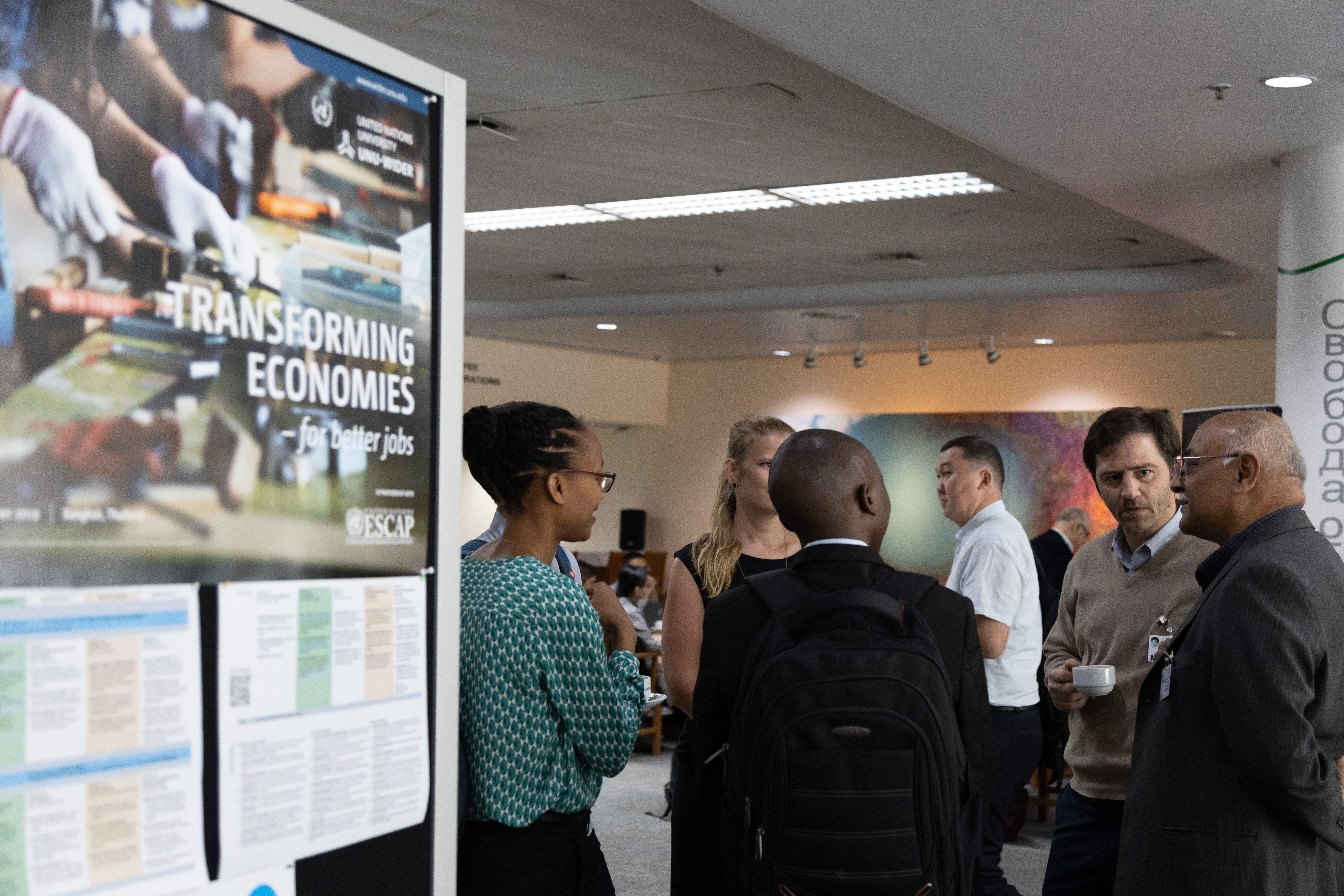 There were talks of possible research collaborations, ideas shared for gathering and expanding datasets, and discussions on policy implications. These moments are why the WIDER Development Conference is a valuable event.
There were talks of possible research collaborations, ideas shared for gathering and expanding datasets, and discussions on policy implications. These moments are why the WIDER Development Conference is a valuable event.
This was the first time we have partnered with another UN body for our WIDER Development Conference. Now more than ever it is important to join forces and work together to mobilize knowledge and create a space for shared learning between researchers, policy practitioners, and decision makers. With just eleven years left to achieve agenda 2030, we need to do whatever it takes to make progress. Working together to leverage our strengths across the network is a vital part of that, which is why we’re planning the theme of next year’s conference to be on SDG17: partnerships for the goals.
The views expressed in this piece are those of the author(s), and do not necessarily reflect the views of the Institute or the United Nations University, nor the programme/project donors.
 Join the network
Join the network